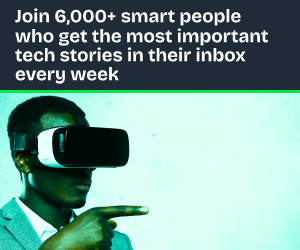Looking back at my journey, I’ve come to understand that getting hired in tech is more than just having the right technical skills. From a newbie designer at ULesson during NYSC to becoming a dev recruiter, I’ve been on both sides of the hiring table. That experience has given me unique insight into what companies truly seek in tech talent today.
Experience Helps, but Persistence Matters More
Breaking into tech can feel like an uphill climb, especially when companies prefer candidates with years of experience. But persistence often matters more. My first opportunity came with uLesson, but it didn’t happen overnight. I initially reached out before my NYSC, but they weren’t hiring fresh graduates at the time. Instead of giving up, I stayed on their radar. When I reached out again at the start of my NYSC, my persistence paid off.
What changed? Beyond my skills in digital design, I took the time to understand their tools and processes—even ones I hadn’t used before. That extra effort gave me an edge because I could speak their language during the interview, which recruiters appreciate. Technical knowledge alone isn’t always enough; companies value candidates who show genuine interest in their mission. By following up and showing persistence, I proved I wasn’t just looking for any job—I wanted to work specifically with them.
Sell Yourself in the Moment
At the Flutterwave Job Fair, making a strong first impression was key. With companies like MTN, Opay, UBA, Chipper Cash, and Carbon in attendance, every interaction was an opportunity. Recruiters weren’t collecting random CVs—they only engaged with candidates who stood out.
Walking from booth to booth, I quickly realized technical skills weren’t enough. Recruiters were drawn to candidates who confidently communicated their value. They looked for people who were willing to learn, could explain their projects clearly, and had confidence in their abilities. Even with limited experience, those who could highlight the impact of their work had an advantage. Being able to articulate strengths effectively is just as important as the skills listed on your CV.
Communication Can Make or Break Your Chances
By the time I joined OmniBiz, I wasn’t just a designer anymore—I was leading a team and involved in recruitment. Some candidates had impressive portfolios, but during interviews, it became clear they didn’t fully understand their own projects.
The designers we hired weren’t just talented; they could explain their processes and decision-making. Recruiters don’t just want to see your work. They want to hear why you made certain design choices, how your work impacted a project, and how you approach problem-solving beyond just creating visuals. If you can confidently walk a recruiter through your projects, you’ll stand out.
Show That You’re Eager to Learn
Just like my journey with uLesson, many companies prioritize hiring people who are adaptable and open to growth. If you’re new to the industry, one of the best ways to stand out is by showing initiative.
Have you worked on personal projects? Taken online courses? Experimented with new tools? These consistent efforts prove you’re not just waiting for opportunities but actively building your knowledge. In 2025, recruiters are looking for candidates who show potential, not just polished skills. Demonstrating curiosity and drive signals that you will continue learning and adding value long after being hired.
Authenticity is Key
If something is in your portfolio, be prepared to explain it. Hiring managers can quickly tell when someone is bluffing or exaggerating their experience. The best candidates don’t just present polished work; they understand their projects in depth and can articulate their thought process with confidence.
In my experience, it’s better to showcase a few projects you’re genuinely proud of rather than filling a portfolio with work you can’t fully explain. Authenticity builds trust, and in the tech industry, trust is often a deciding factor.
Personal Branding Matters More Than Ever
Your online presence can be just as influential as your CV. Tech recruiters often go beyond applications to see how candidates present themselves online. Sharing insights on LinkedIn, maintaining a portfolio website, and engaging in industry discussions make recruiters more likely to remember you.
A great way to stand out is by posting about your learning journey, industry trends, or case studies on platforms like LinkedIn or X (Twitter). Consistency in sharing knowledge builds visibility and credibility.
Networking: Know People
Many tech roles, especially entry-level jobs, are filled through referrals. Attending local tech events, joining online communities like Tech Twitter NG, and engaging with professionals online can open doors.
LinkedIn makes this easy. Search for your desired role, connect with industry professionals, and interact with their content. Even a simple message like, “I admire your work at X company—I’d love to learn more about your journey,” can lead to valuable opportunities.
Tools & Resources to Stay Competitive
For Designers: Figma, Photoshop, Illustrator, After Effects, LottieFiles, and integrating an AI workflow helps designers create stunning visuals and animations. For Developers: Use of AI as assistants, VS Code, GitHub, CodeSandbox, TailwindCSS, Webflow, and Vercel supports coding efficiency and collaboration. AI & Automation: Runway ML, Adobe Firefly, ChatGPT, Deep Seek AI, Zapier, and ElevenLabs enhance creativity and streamline workflows. Learning & Growth: Awwwards, Behance, Dribbble, Udemy, Interactive Design Foundation, Coursera, and School of Motion offer valuable courses and inspiration. Productivity & Workflow: Notion, Trello, Asana, Loom, and Zapier help manage tasks and improve efficiency.
I’ve used many of these tools, and they’ve significantly boosted my productivity and creativity.
Final Thoughts
At the end of the day, tech recruiters are looking for candidates who show persistence and genuine interest in the company, communicate their skills with confidence, demonstrate a willingness to learn and adapt to change, and present authentic work while explaining their thought process.
If you focus on these qualities, you’ll not only stand out but also prove you’re ready to thrive in the tech industry.









